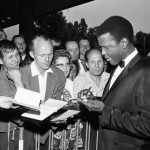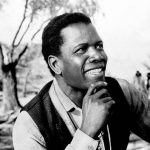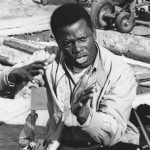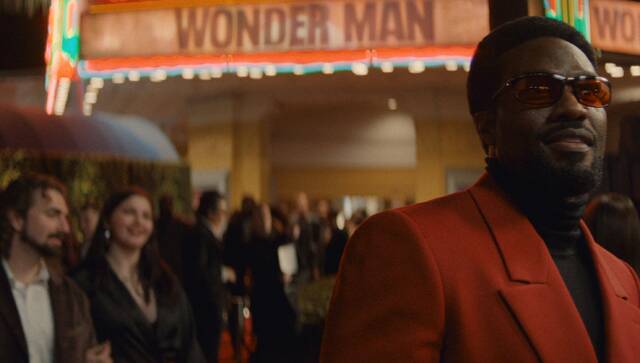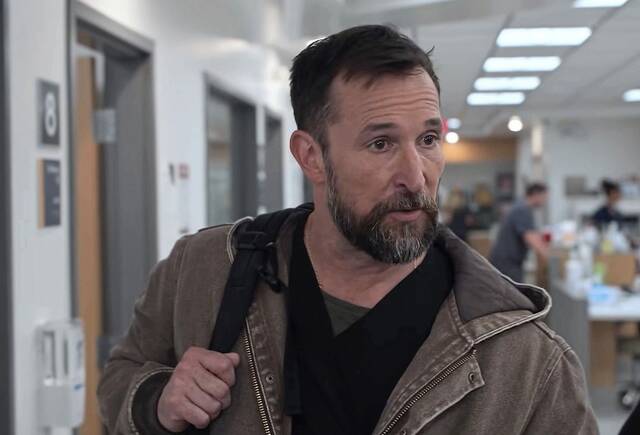Sidney Poitier’s groundbreaking work as a film actor and director is being hailed by prominent figures in Pittsburgh’s rich arts and entertainment community as the inspiration for their careers as actors, directors and playwrights.
Poitier, the first Black actor to win an Oscar for his performance as a handyman in 1963’s “Lilies of the Field,” died Friday at 94.
Before Poitier came along, Black characters usually were portrayed in movies in unflattering and stereotypical ways. Poitier broke that mold by articulating intelligence, intensity and defiance on screen, said Pittsburgh actor, director and playwright Monteze Freeland.
“I think specifically for me as a Black male actor, I think he was part of that blueprint that we still follow today. I think he was a lot of people’s North Star in a sense where he, of course, was a trailblazer,” said Freeland. “He knocked down barriers, he started trends. I think he is credited for the contemporary Black expression of acting that has served us throughout the years.”
Mark Clayton Southers, founder and producing artistic director of the Pittsburgh Playwrights Theatre Company, remembers the profound impact Poitier made on him when he first saw him on screen.
“It’s like the impact (Barack) Obama has on Black kids today. They see him and know that one day they could be president. Well, when we saw Sidney Poitier on film in ‘Lillies of the Field’ and ‘Blackboard Jungle,’ he was our hero,” Southers said.
“It was amazing to see him work his craft and be so articulate. At that time, it was us against the world. It was unheard of just to get our stories told at that time. He was a renegade, and it was always refreshing to see him play these different roles. It was exciting to see this handsome Black man on screen.”
Freeland directed a 2018 Pittsburgh stage version of one of Poitier’s most popular films, “In the Heat of the Night.” In the movie, Poitier plays Philadelphia police officer Virgil Tibbs visiting his mother in Mississippi. He is mistakenly accused of the murder of a white man and then brought in to help solve the case.
Freeland said Poitier’s approach to playing the police officer, who is disrespected at every turn, helped inform his approach to directing the play.
“I think Sidney’s approach to playing Virgil Tibbs as cool as he played him until it was time to really snap when it was necessary, I think that is the essence of the piece that I wanted to capture on stage,” said Freeland. “The whole show had that sort of slick style that he was able to command and slip into as a tactic. As a director, that is what I wanted to infuse in the piece.”
Kim El, a Pittsburgh actor, playwright and educator, said Poitier’s performance as the ambitious young father in “A Raisin in the Sun” jump-started her desire to pursue a career in the arts.
“I’m originally from the Hill District and lived in the housing projects, and I was thinking that even though I like to write, it wouldn’t be possible for a young Negro girl to be a famous writer,” said El, who is 63. “It was very inspirational for me. Whenever I perform on stage, that’s my go-to.”
El said Poitier’s humble beginnings are an inspiration.
‘The fact that he came here (from the Bahamas) without any money and not really literate — he had to learn how to read when he came to the U.S. — I can relate being in a humble area, being in a housing project.
“What struck me with ‘A Raisin in the Sun’ was watching how he steps and turns and moves.”
Though Poitier was criticized for his good guy roles, Freeland says his range as an actor and nuanced characters — stretching from Noah Cullen in “The Defiant Ones” to John Prentice in “Guess Who’s Coming to Dinner” are underappreciated.
“That is indicative of the African American experience,” he said. “That sometimes African Americans are treated as a monolith, and nuance is not always appreciated nor is it always recognized. So, I think, especially the way roles were written for us during that time, you had to be very skilled to suss out some of the nuance.
“He absolutely was a scientist that way in making these characters, who could have just fallen into stereotypical hands in a less capable actor, that he found the gold inside of it, the grace inside of it. (And) he found the intelligence inside of it as well.”







